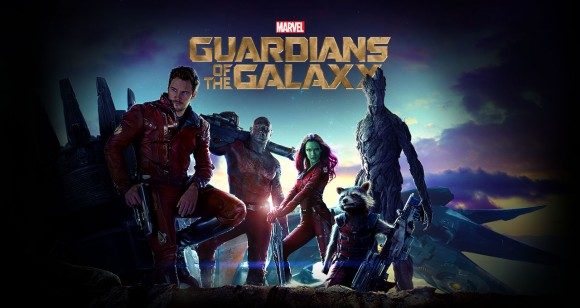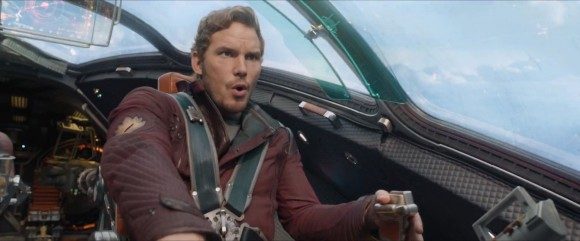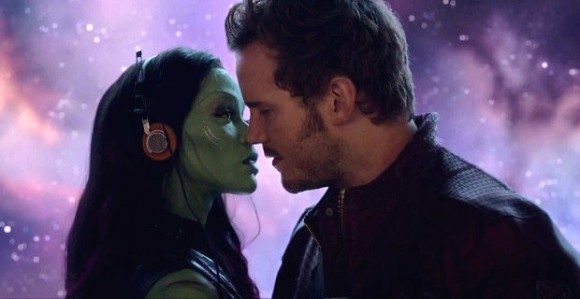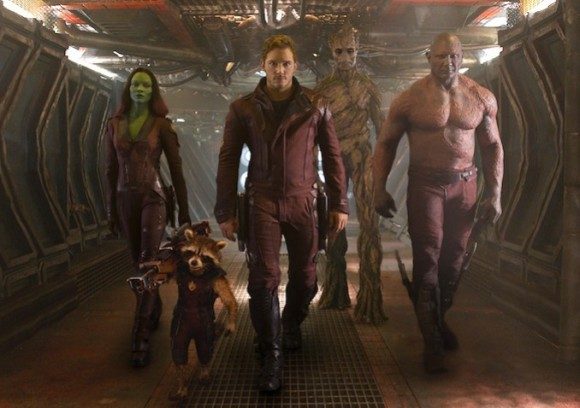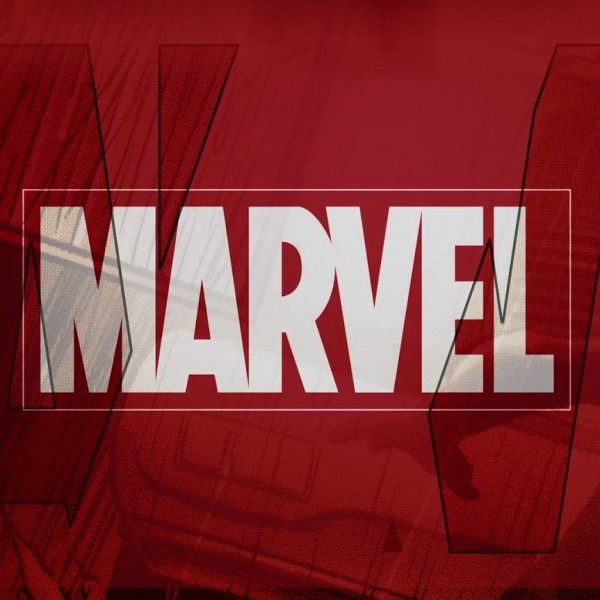It’s worth wondering why I liked Lucy (relatively speaking) and wasn’t super hot on Guardians of the Galaxy. Fair question, and the answer mostly comes down to expectations. And I’m not even talking about my personal expectations walking into the theater, though there’s certainly an element of that figuring into my reaction as well. See, delusions of grandeur aside, Lucy never really supposes that it’s anything much more than a gussied up B-movie. When something dumb happens, you roll your eyes and roll with it, smile on your (or at least my) face the whole (mostly whole) time. The lack of shiny pretension says it’s ok to laugh at or with the movie. Not so with Guardians of the Galaxy, which is unquestionably, absolutely, 100% shiny pretension. It’s a “comic book movie,” so it gets to get away with some genre artifacts, but the kind of movie it presents itself to be means that Guardians invites criticism of its plot and characters in a way that films like Lucy never do. Objectively, is there more wrong with Lucy as a film? Are the plot holes more heinous and the characters more poorly drawn? Maybe, but objectivity never has been nor should be the goal in film criticism. See, whereas B-movies like Lucy have the potential to incorporate all the rough edges into part of the absurd amusement it provides, I have to judge Guardians of the Galaxy as the big budget, blockbuster thing that it’s chosen to be. We’ve already had Serenity (Joss Whedon’s movie based on his Firefly series) – a smaller version of this sort of thing is possible. The expectation for Guardians of the Galaxy may be that it’s going to be a little goofy, a little jokey, a little weird, but it’s always going to be a polished work. When push comes to shove, we’re supposed to look at this as a serious cinematic effort.
So here’s where that becomes an issue. Sequences of the main character as a child aside, our introduction to Peter Quill, aka Star Lord (aka Chris Pratt, Parks & Rec), sees him landing on a dangerous planet. Initially, he acts like we might expect – confident, but wary of potential dangers. Then he enters a cavern, puts on some headphones, and starts dancing through the landscape to the sounds of Blue Swede (or whatever it was that played over that sequence), manhandling attacking rat monsters as he goes. Both of those (the cautious and the carefree) approaches work, the problem is that they both exist together. Nothing about Peter’s situation changes when he shifts from the first approach to the second, which means we’re actually getting mixed signals about his character. Is he a cautious but intrepid Indiana Jones-type adventurer? Or is he a carefree badass in a world too small to pose any threat? When he put on the headphones and started dancing I laughed, but he should have been dancing from the moment he touched down. We still get to see his serious and capable side just moments later when he escapes Korath the Pursuer (Djimon Hounsou, Blood Diamond). As is, the characterization of Peter as a cocksure goofball is placed upon him more than it comes out of him.
The problem with Guardians of the Galaxy is that these seams are showing everywhere. The plot is an overlong mess of cobbled together chase sequences and explosions with nary a moment to catch your breath. Which in turn means that the massive quantities of information regarding this cosmic wing of things Marvel wants us to know about is achieved through mountains of exposition and lots of blabbering about races of people whose names I can’t remember nor care anything about, and some treaty that’s being violated. Which in turn means that, like the above sequence I described with Peter Quill, there’s a lot more semblance of character and proper motivation than there is actually in existence. Gamora (Zoe Saldana) has been working for Ronan, the film’s Big Bad of whom there’s not much more to say, but for some reason decides to betray him. Rocket and Groot (voices by Bradley Cooper and Vin Diesel, respectively) are just passing thugs. Drax the Destroyer (Dave Bautista) wants to kill Gamora, but wants to kill Ronan more, but maybe wants to kill Thanos most, and maybe couldn’t kill any of them even if he tried. And by the end…well, by the end you realize that as much as this felt like Marvel trying to do Star Trek by way of the Star Wars prequels, it’s really just another plug for Avengers 3, since the plot, such as it is, revolves around another Infinity Stone (like the Tesseract from Captain America: The First Avenger and the Aether from Thor: The Dark World) and features an appearance by Thanos (purple guy from Avengers credits scene) in the middle.
The Verdict: 2 out of 5
So what are we left with from this installment in the Marvel Cinematic Universe, an installment to which I was very much looking forward? Be scared for Ant-Man, for one. The setting may be different, but this was still a cookie cutter Marvel movie through and through, and Edgar Wright leaving Ant-Man because the studio couldn’t bear to be hands-off doesn’t bode well on the heels of this entry that was missing a soul. I think that might be what it comes back to the most. The characters and the universe they inhabit seem thrown together by forces outside their control (aka the script), and this movie bites off way more than it should ever have tried to chew through. This was one of those movies that felt like it ran long while leaving out way too much all at once, and that almost always points to failings in vision.

